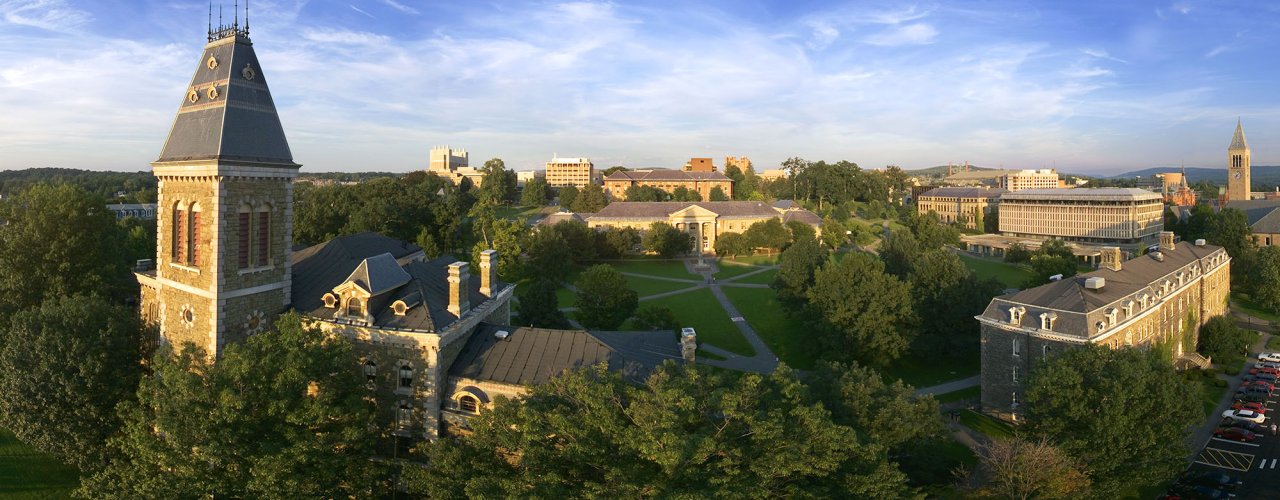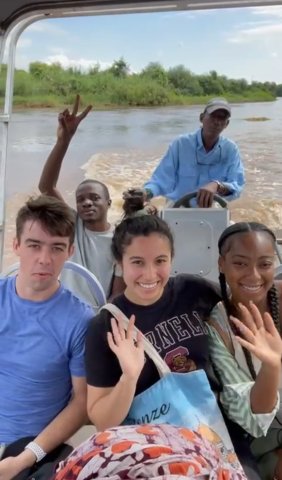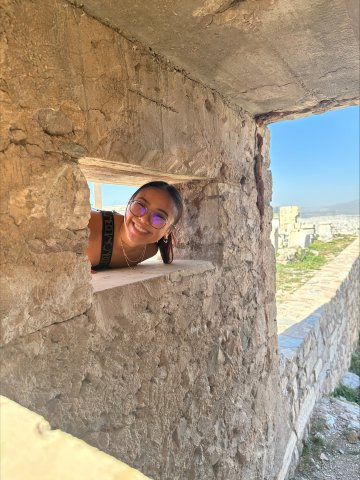Students Discuss Navigating Identities Abroad
For Eva Telesca ’25, studying abroad in Zambia over winter break was a transformative experience. Learning about Zambia’s political history and engaging in learning outside of the classroom setting provided options for a new form of academic rigor. But alongside her positive experiences in the classroom, she faced challenges.
“The minute I stepped out of the classroom, what I found challenging was the continued forms of systemic discrimination against other social identity groups beyond race,” said Telesca, a student in the ILR School and panelist at the March 13 “People Like Me: A Student Panel about Navigating Identity Abroad" global freedom of expression event. “It was difficult to contend with the fact that Zambia’s penal law severely punishes individuals suspected of being homosexual as ‘against the order of nature.’”
“As a queer individual, I had to conceal one of my social identities in order to avoid putting myself in danger,” she said. “But as a Hispanic woman, my more visible social identities elicited condescending comments, disrespectful jokes, and social exclusion.”
While living with a host family, she navigated norms of gender roles and dynamics that were different than she was used to at home. She found ways to engage with her housemates by respecting differences, studying the Nyanja language, and using generative listening techniques.
The event’s four panelists studied in Global Hubs locations ranging from Denmark to Singapore and spoke about their perspectives on gender, sexuality, race and identities that impacted them while abroad. This global freedom of expression event was part of the universitywide theme year, “The Indispensable Condition: Freedom of Expression at Cornell.”
Panelist Annie Le ’24, a government major in the College of Arts and Sciences, studied abroad in Copenhagen, where she navigated from the lens of being a student of color, a woman, and a first-generation student. Study abroad was her first experience traveling internationally.
Le lived with Danish and American roommates in residential housing for local and study abroad students. “I bonded with my residential friends by sharing experiences that revealed our similarities and differences,” she said. “It was a truly transformative experience that made me realize there is so much more to the world than the little bubble I grew up with.”
One difference she felt was the experience of being a person of color in Europe. “I was hyperaware of my ethnic identity throughout my time there and had to be more alert,” she said. “Because everything was brand new to me, I struggled with reassuring myself that my discomfort was a result of being so far from home rather than people looking at me differently. It forced me to reflect and reevaluate my positionality, being born and raised with American culture, values, and ideas.”
These experiences also created new paths for connecting with others. Le opened up conversations with roommates, friends, and program support staff that helped her feel less isolated and regain her sense of self. “Thankfully, my roommates and people I’ve encountered were receptive to learning about my experiences as a person of color both back home and abroad,” she said.
Both Le and Telesca advise other students to go beyond the comfortable.
“Instead of traveling to a country whose customs are familiar, expand your studies and embrace discomfort,” said Telesca. “The beauty of immersing yourself into a foreign environment is that important paradigm shifts can inform how we view the world. When we confront the status quo and deepen human connection, we begin to create communities across differences.”
“By engaging with my roommates and the broader local area, I was able to immerse myself in a culture I never would have thought I belonged in,” said Le. “My support system, with friends and family both at home and new ones made abroad, reminded me that I am a whole and valuable person and should never shy away from expressing that.”



